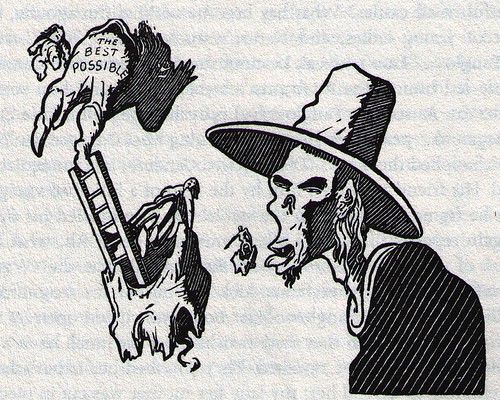URBAN DICTIONARY: TOP DEFINITION
PANGLOSS
“The philosopher in Voltaire's Candide. He believes ‘All is for the best in this best of all possible worlds.’ Even as he suffers horribly throughout the book [and winds up losing his nose to syphilis] he stands by this concept. By the end of the book, though, he admits ‘he asserted it still, but he no longer believed it.’”
IMO, Donald Trump is our modern Pangloss. His motto is “It is what it is”—a justification for accepting and even encouraging existing or potential evil. This is DJT’s Fake Optimism and the source of all his ludicrous hyperbole. In reality it is a cruel, brutish, pessimistic, and stupid ideology.
I suspect that many Trump supporters are like poor old syphilitic Pangloss: they still “assert” the MAGA doctrines, but they no longer truly “believe.” They will continue to vote for Trump, though not out of any real conviction, but merely in order to demonstrate what Emerson called “a foolish consistency.”







